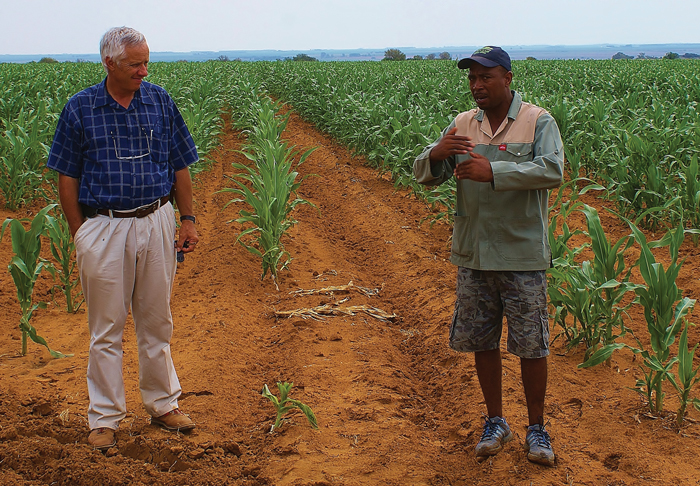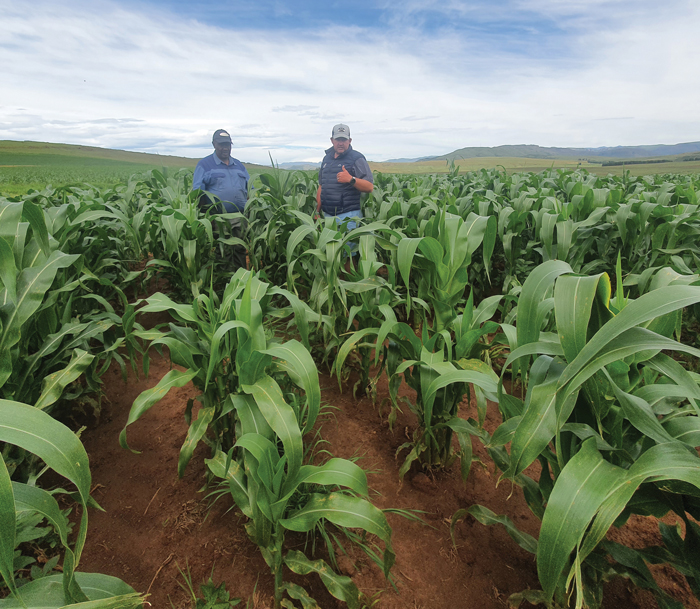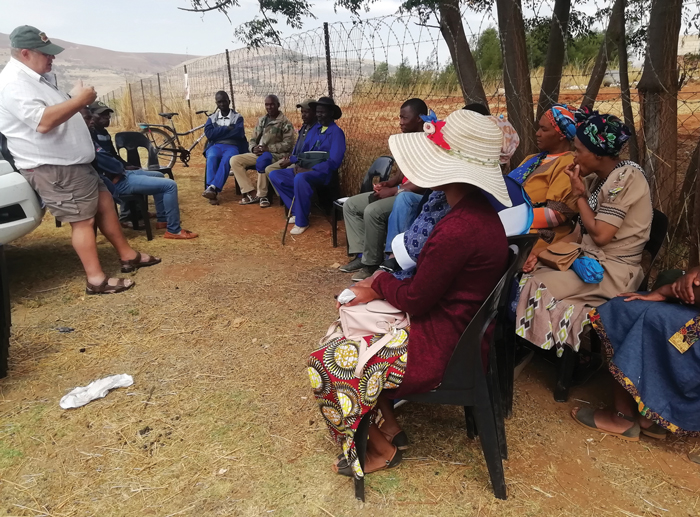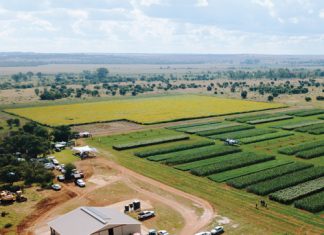‘We are passionate about growing grain farmers towards commercial success. Our vision is for building a competent sector which has skilled commercial farmers who are sustainably contributing to national food security,’ says Derek Mathews, chairman of Grain SA.
SA Graan/Grain contributor, Jenny Mathews, spoke to him about Grain SA’s vision for farmer development after he had been re-elected as chairman of the organisation during the Grain SA Congress in early March.
According to Derek any industry should have an ongoing process where it welcomes and nurtures new entrants into the business. ‘There are always dynamic developments and new knowledge systems that must be transferred to farmers. It is all about delivering the required results through capacitated farmers,’ he said.
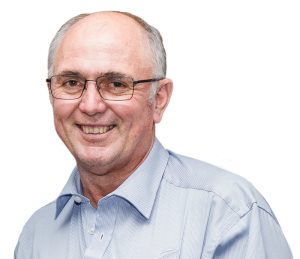
Grain production
When asked how much of the grain crop is produced by black farmers, Derek answered: ‘As an organisation committed to transformation in the agricultural sector, we have been working in farmer development for over 22 years now. We have met, encouraged, supported, mentored, cried and laughed with so many amazing people. They are hardworking farmers from all over the country.
‘We have seen farmland in the hands of a variety of black farmers – from the small-farmer subsistence level that really matters to household food security, to the much larger and still expanding commercial enterprises of new era commercial farmers who are successful businessmen. At Grain SA we believe that everyone who wishes to turn his hand to grain farming deserves a fighting chance – and we can help with that.
‘It is increasingly more important that we see results where we put our funding. The question our leadership is facing more and more, is not how many farmers we are helping, but rather how much of the annual crop is being produced by black farmers.’
Derek said the question of how many of the farmers that Grain SA has worked with were now independent commercial farmers, was not always easy to answer as progress was impacted by many things. ‘A farmer can do everything right, but in a drought season the crop will always be negatively affected and profits will plummet.’
To Derek it is essential that the transformation funds spent by Grain SA must increase the percentage of the crop that is produced by black farmers. It is widely recognised that even when there is support in the form of recapitalisation, mentorship or other support to new era farmers, the playing fields are not automatically evened out. The bottom line is that it must always make financial sense to grow grains.
The profitability in the industry should be corrected and this can only be done when farmers and the different role-players, including input suppliers and the state, work together.
Collaboration
Grain SA is the voice of the grain producer. To Derek it is heartening when Grain SA is approached by policymakers and role-players in the sector for collaboration. ‘They turn to us for opinions, insights and advice as well as for accurate industry data and statistics. We have the capacity to do development, to advise and to lobby around the economics of farming because of the expertise we have.’
To the question why other stakeholders should channel their funds through the Grain SA Farmer Development Programme, Derek answered in the following way:
‘One would search hard to find another team like the one we have,’ he said about the passionate and dedicated Farmer Development team, of whom he is very proud. He is also proud of Grain SA’s capacity to manage diverse projects with excellence in implementation, supported by good financial management – which time and again has presented the annual Congress with consistent unqualified audits. He believes that Grain SA has much to offer the sector – not just because of the experience of the team but also because of the footprint that the organisation has in all the grain-growing regions of the country.
Derek highlighted the capacity of the Grain SA Farmer Development Programme to adapt a project according to any specific partner’s objectives and vision. ‘There is fluidity in the way we design projects for different groups of farmers. This enables us to implement projects such as the Beyond Abundance Project for small-scale farmers, but also equally manage large sums of money targeted at addressing the unique needs of a large-scale farming operation.’
Highlights and successes
‘Grain SA’s involvement and influence in discussions that are related, for example, to the soybean industry, the diesel rebate, grading regulations and Leaf Services, are highlights. We were proactive in the drive for a turnaround strategy in the wheat industry. There have been some dramatic and significant improvements in the producer’s pocket because of our interventions. The benefit is a massive return on investment in relation to the small levy they pay to Grain SA.’
Looking ahead
‘In five years’ time, we should have more fully commercial black farmer members. Those are farmers who are farming on their own, fully independent of grants. We also need to bring more of those who are already farming successfully into the fold by educating more farmers about the important role that Grain SA plays in the sector. We do significant work that affects the farmer’s pocket, regardless of whether he or she is a member of Grain SA. We’d love for more farmers to join us, commit their levies to furthering the grain farmer’s interests and make our voices heard,’ Derek elaborated about Grain SA’s vision.
‘At the same time, we would love to ignite a fire in the hearts of young farmers. We would love to meet them and include them in our organisation. Any industry that has no succession plan in place, has a limited lifespan.’
